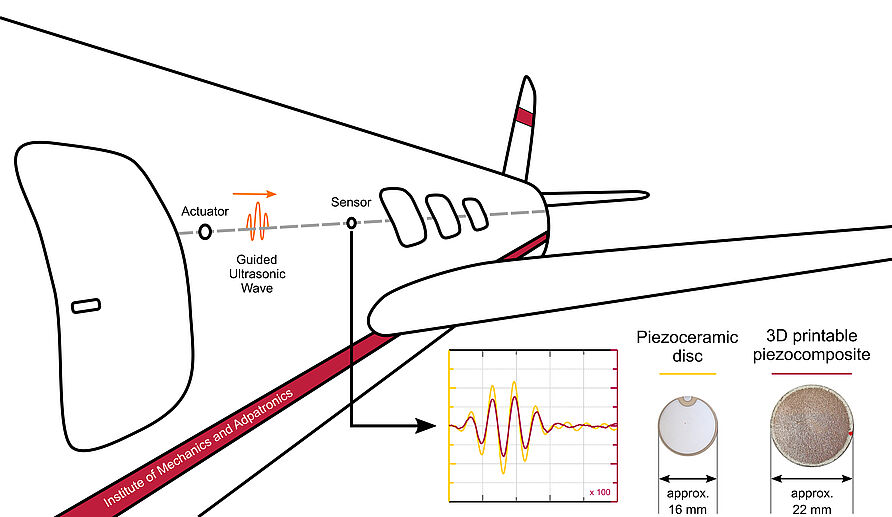This study investigates the applicability of 3D printable piezoelectric composite sensors for structural health monitoring (SHM) systems working with guided ultrasonic waves.
Guided ultrasonic waves in thin-walled structures interfere with structural defects and can be used to assess the structural health of lightweight components. These structures might show complex geometries which require adapted sensor designs when working with piezoelectric sensors. Piezoelectric ceramics are brittle, so we combined commercially available photopolymer resins with lead zirconate titanate (PZT) micrometer-size particles. This forms 3D printable suspensions that solidify under UV light. The process of tape-casting is used to manufacture sensors in various geometries.
The manufactured sensors show a significantly lower piezoelectric charge coefficient than pure PZT ceramics but demonstrate successful detection of guided ultrasonic waves in an isotropic aluminum plate for frequency-thickness products of at least up to 0.5 MHz mm. The generated signals are qualitatively verified using analytical formulations.
In addition, the acoustic impedance matching of these sensors is evaluated by qualitatively comparing occurring reflections of incoming guided ultrasonic waves at applied piezoelectric ceramic sensors and the newly developed 3D printable piezocomposite sensors. The piezocomposite sensors result in reflections with significantly lower amplitude compared to ceramic ones.
3D printable piezoelectric composite sensors open up new possibilities for SHM systems based on their free-form design capabilities and better acoustical impedance matching compared to piezoceramic sensors.
T. Roloff, R. Mitkus, J. N. Lion, M.Sinapius
3D-Printable Piezoelectric Composite Sensors for Acoustically Adapted Guided Ultrasonic Wave Detection
Sensors 2022, 22(18), 6964; (2022) [Link]

